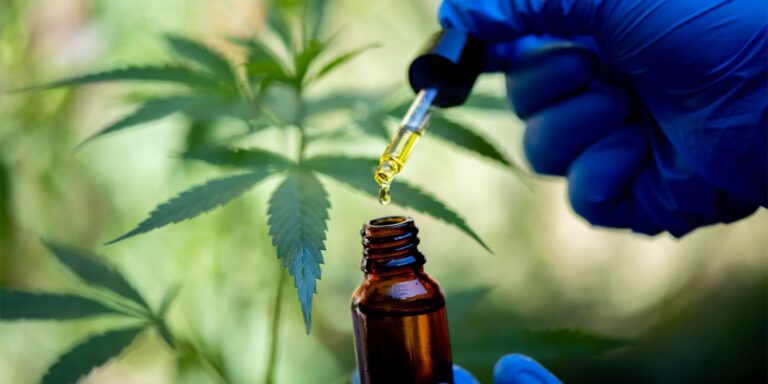A recent placebo-controlled study investigated the potential effects of medicinal cannabis oil taken for insomnia on next-day cognitive and psychomotor performance. The study found no significant differences in 27 of 28 tests of cognitive function, psychomotor ability, and simulated driving ability. The study was published in the journal Psychopharmacology.
Cannabis is a plant that contains cannabinoids, the most well-known of which are tetrahydrocannabinol (THC) and cannabidiol (CBD). THC is the main psychoactive ingredient responsible for the “high” associated with recreational cannabis use, while CBD is non-psychoactive and is often utilized for its potential therapeutic effects. Beyond recreational use, the medicinal properties of cannabinoids are being studied, and cannabis products have shown promise in treating conditions such as chronic pain, anxiety, epilepsy, and inflammation.
Medicinal cannabis oil, derived from the cannabis plant, contains only CBD or a combination of CBD and THC. This combination is often used to treat a variety of health conditions, including insomnia. The use of medicinal cannabis oil is regulated in many countries, and its legal status varies by region.
Study author Anastasia Sulayev and her colleagues aimed to investigate whether taking medicinal cannabis oil before bed to treat insomnia causes cognitive impairment the next day. Their study examined the effects of a single dose of medicinal cannabis oil on next-day cognitive function in adults with insomnia disorders.
This study analyzed data from a large experiment that evaluated the effects of THC and CBD on sleep in insomniacs. Participants included 20 adults with insomnia, 16 of whom were female, with an average age of 46 years. Of note, 75% of participants were either new to cannabis or had used cannabis less than 10 times in their life. None of the participants had consumed cannabis or cannabis-derived products in the 3 months prior to the study.
Each participant completed two 24-hour overnight assessment visits in the laboratory. One night, they were given 2mL of medicinal cannabis oil containing 10mg of THC and 200mg of CBD. On another night, they received a placebo (2 mL of an oil that looked the same but contained no cannabinoids). Neither the participants nor the researchers administering the treatments were aware of which oils were administered on which nights. The order in which participants consumed cannabis oil or placebo was randomly assigned to ensure a balanced crossover design.
The morning after each night's treatment, approximately 9 to 11 hours after ingesting cannabis oil, participants completed a series of 28 cognitive tasks designed to assess a variety of cognitive functions, including attention, memory, and executive function. . In addition, they also participated in a simulated driving evaluation. This is a 30-minute driving scenario that has been tested in previous studies to detect the acute effects of THC on driving performance.
They found no significant differences in performance on cognitive or psychomotor tests between days participants took medicinal cannabis oil and days they took a placebo. The only exception was a slight decrease in the accuracy of executive function tests after cannabis oil administration, but this difference was small and not considered clinically meaningful. Similarly, simulated driving performance did not differ significantly between the two conditions.
“The results of this study show that in adults with insomnia disorder who use cannabis infrequently, a single oral dose of 10 mg of THC (in combination with 200 mg of CBD) improves 'next day' cognitive function compared to a placebo.” This indicates that driving ability will not be significantly impaired. ” concluded the study authors.
This study contributes to the growing body of research on the medical uses of cannabis oil, particularly related to insomnia. However, it is important to note that these findings relate specifically to the effects of the specific cannabis products used in the study. Other cannabis products with different concentrations or ratios of THC and CBD may produce different results, especially when used in high doses or repeatedly.
The paper, “Assessing the potential for 'next-day' functional impairment in insomniacs receiving oral medicinal cannabis products at night: a pilot randomized controlled trial,” was written by Anastasia Suraev, Daniel McCartney, Nathaniel S. Marshall, Christopher Irwin, Ryan Vandree, Ronald R. Grunstein, Angela L. D'Osario, Christopher Gordon, Delwyn Bartlett, Camila M. Hoyos, and Ian S. McGregor.

